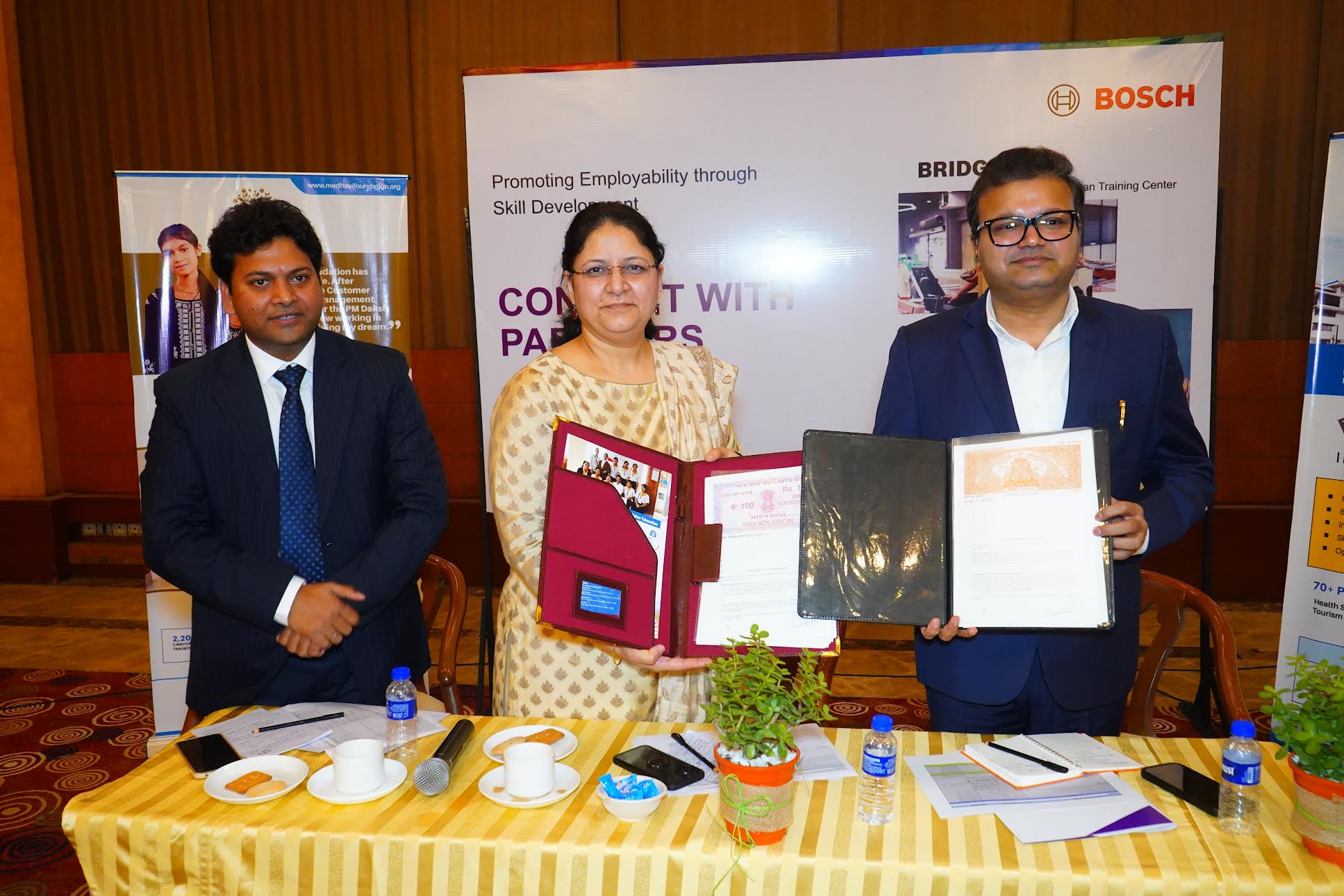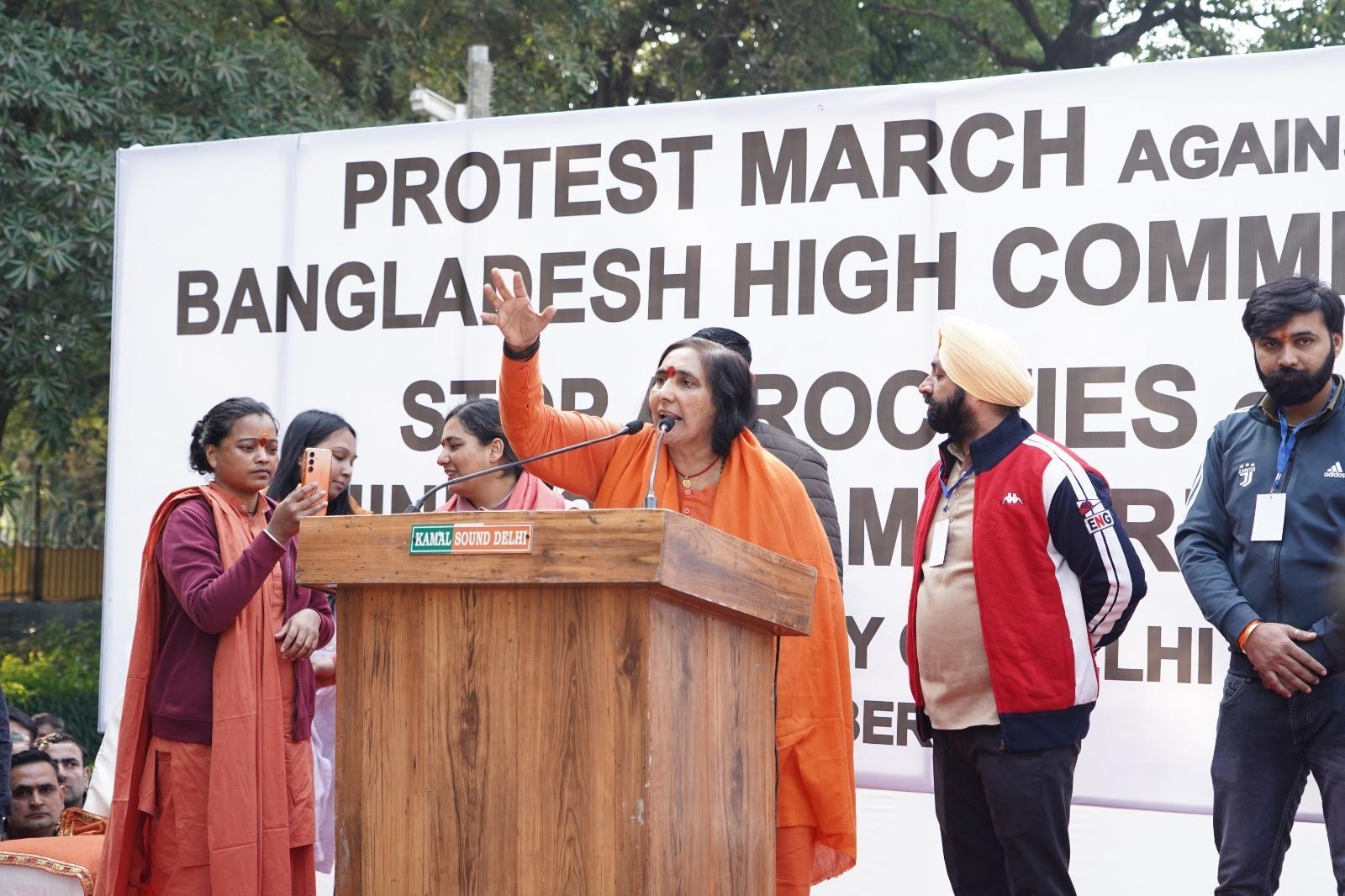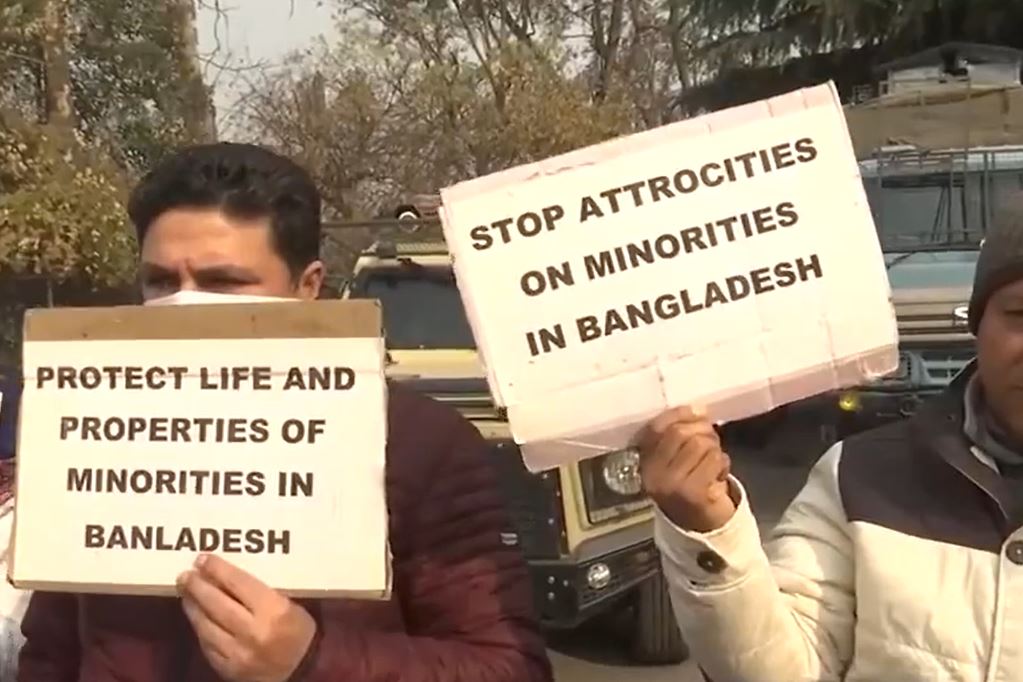· Northeastern states to be a key focus area
· The three-month employability skills training programs relate to sectors like automotive, manufacturing and digital technologies
KOLKATA : BOSCH India Foundation, the social engagement arm of BOSCH in India, and Medhavi Group, comprising the Medhavi Foundation and Medhavi Skills University, have signed a Memorandum of Understanding (MoU) to collaborate on advancing skill development initiatives in various locations across India, with special emphasis on Northeastern states.
The strategic partnership would implement best-in-class skilling models and practices to empower underprivileged youth with employable skills through BOSCH’s BRIDGE program. The three-month training modules, to be offered at Medhavi Group training centers, are meant for school or college dropouts. They focus on sectors such as automotive, healthcare, manufacturing, and digital technologies. BOSCH would provide and bring knowledge, expertise and placement opportunities to the program.
Said Mr. Pravesh Dudani, Founder and Chancellor of Medhavi Skills University: “This collaboration with BOSCH India Foundation marks a significant milestone in our mission to transform skill development in India. By combining our expertise in education with BOSCH’s industrial excellence, we can create meaningful impact in the lives of countless young individuals, particularly in the Northeastern region.”
Added Sakina Baker, Head of CSR at BOSCH Limited and BOSCH India Foundation: “The BRIDGE program represents our commitment to creating sustainable employment opportunities for India’s youth. Through this partnership with Medhavi Group, we aim to expand our reach and provide industry-relevant skills that will help bridge the gap between education and employability.”
The MoU highlights the two organizations’ commitment towards the Government of India’s Skill India Mission and nurturing the nation’s goals in workforce development. It aims to provide training to thousands of youths in the next few years and help provide them job opportunities in diverse industries, resulting in significant positive impact on employment and economic growth in the target regions such as the Northeast.
Bosch is a leading supplier of technology and services in the areas of mobility solutions, industrial technology, consumer goods, and energy and building technology. In 2013, it launched its skilling program encompassing various components such as skilling through BRIDGE and Artisan Training programs, upskilling through short-term courses and reskilling programs to Train the Trainers.
These programs are meant to equip individuals with the necessary skills to thrive in a rapidly evolving economic landscape.












